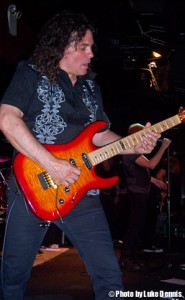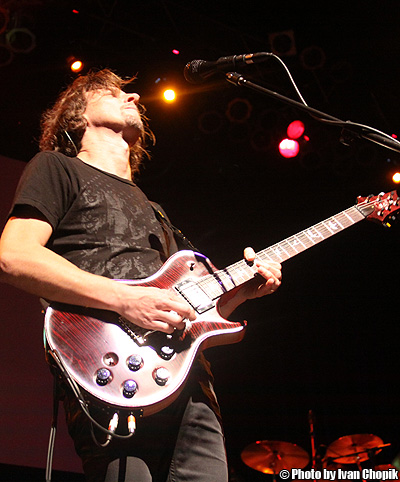[Tony’s 7-string Ibanez guitar is tuned to Standard Tuning for all examples in this Masterclass: B E A D G B E].
Tapped Arpeggio Sequences
Tony likes to incorporate arpeggios into his playing in sequential patterns, whereby a given arpeggio shape can be repeated in different octaves across the fretboard. In this example, he uses hammer-ons, pull-offs, and tapping to outline a Dmaj7 arpeggio shape.
The lick starts with the 7th degree of the arpeggio hammered-on to the root on the high B-string. This move is then followed by a hammer-on from nowhere to the 3rd degree on the high E-string, which in turn is hammered-on to the 5th degree. The line finishes off with a tap on the 7th degree and the entire pattern can then be applied in reverse across lower octaves. Note that this lick does not involve any picking.

Alternate Picked Scale Sequences
‘I like to incorporate some really fast, high-speed picking ideas in a lot of my music. I like the intensity that it adds to the particular runs…’ In this example, Tony presents an approach to playing scales that allows us to break out of the traditional scale fingerings that can confine us to one area of the fretboard. Similar to his approach to tapped arpeggios, he demonstrates a 2-string scale shape that can be repeated in octaves across the fretboard. The repetition of this same shape lends itself to consistent alternate picking, which in turn makes playing at higher speeds more comfortable.
The specific fingering pattern is of particular importance in this example. Tony plays an A Minor scale starting first finger on the root of the scale on the 5th fret of the A-string. He then shifts his entire hand up two frets to the seventh position where he uses his first finger again, this time playing the second degree of the scale. The rest of the scale is then completed in the same position and the whole pattern starts over in the next octave.
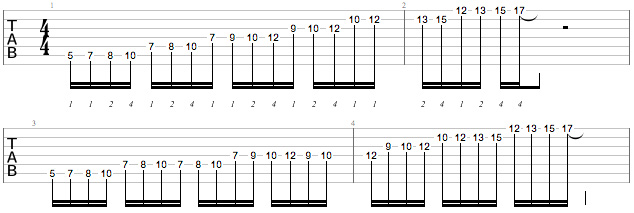
Fire Mountain Melody
In this example, Tony breaks down a melody from ‘Fire Mountain,’ the third track from his self-titled album. The melody can be heard several times throughout the song, making its first appearance at 36 seconds. Being a classically-trained pianist, Tony often shifts between composing on the piano and the guitar. This melody serves as a great example of piece that started out on piano, but was then translated onto the guitar. Note how the arpeggiated line weaves through the chord changes and is embellished by 7th and tension notes.
Audio:
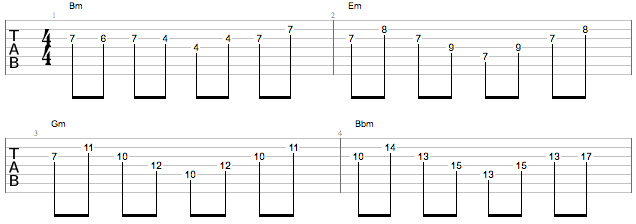
Serpens Cauda Improvisation
The final example is an improvisation over Serpens Cauda, the powerhouse opener of Tony’s self-titled release. In this whirlwind solo, Tony displays a vast array of his signature techniques and inflections. Take note of how his smooth phrasing ideas connect the time signature changes throughout the piece.
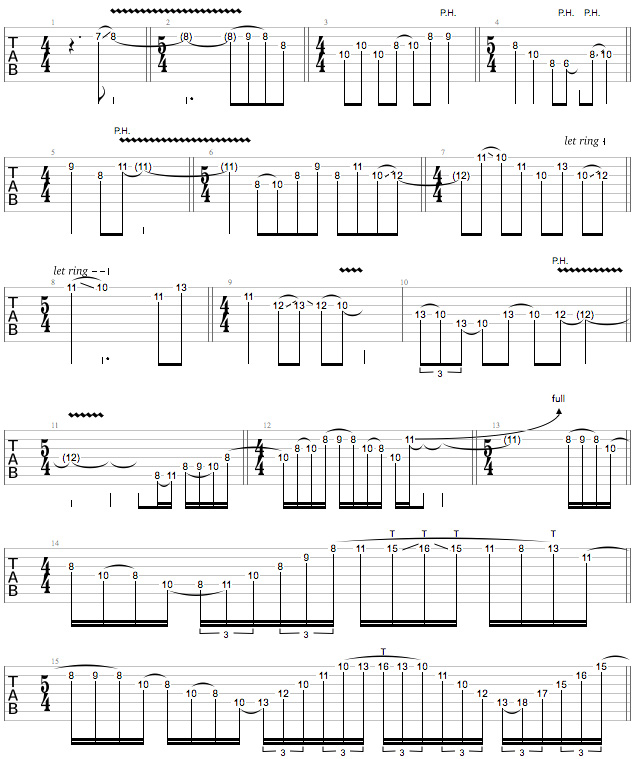
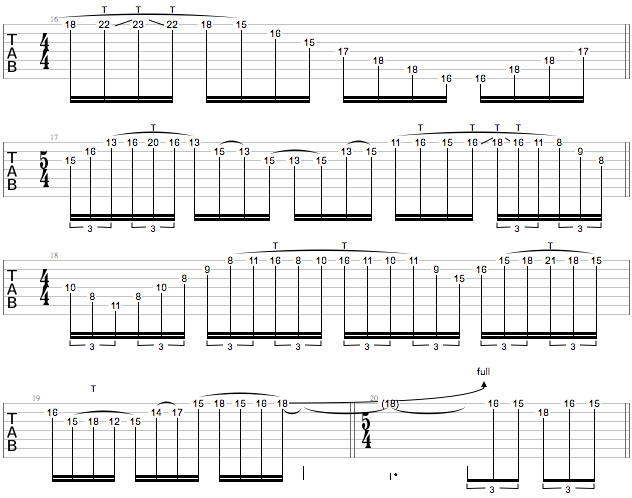
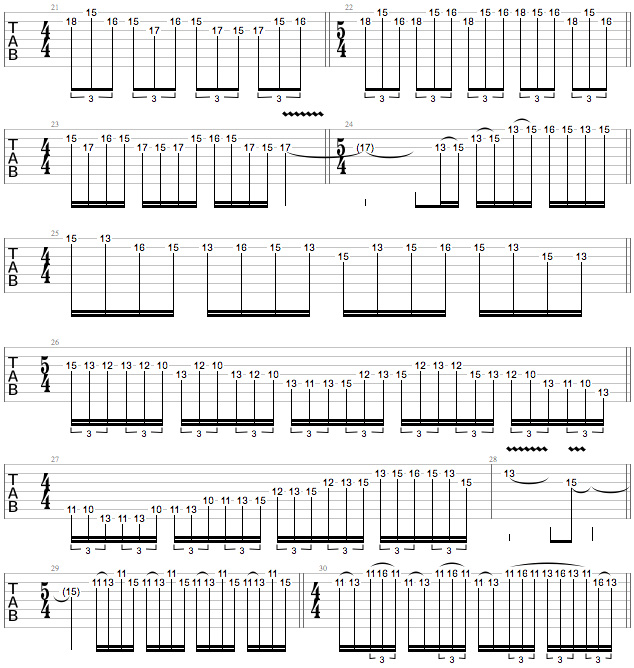
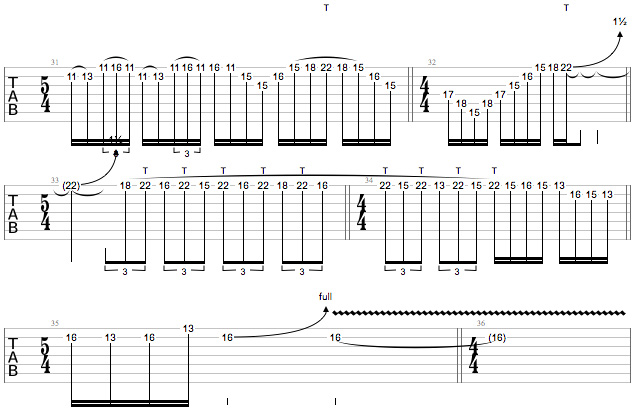
[Special thanks to Peter Boyle for his excellent transcription work.]




